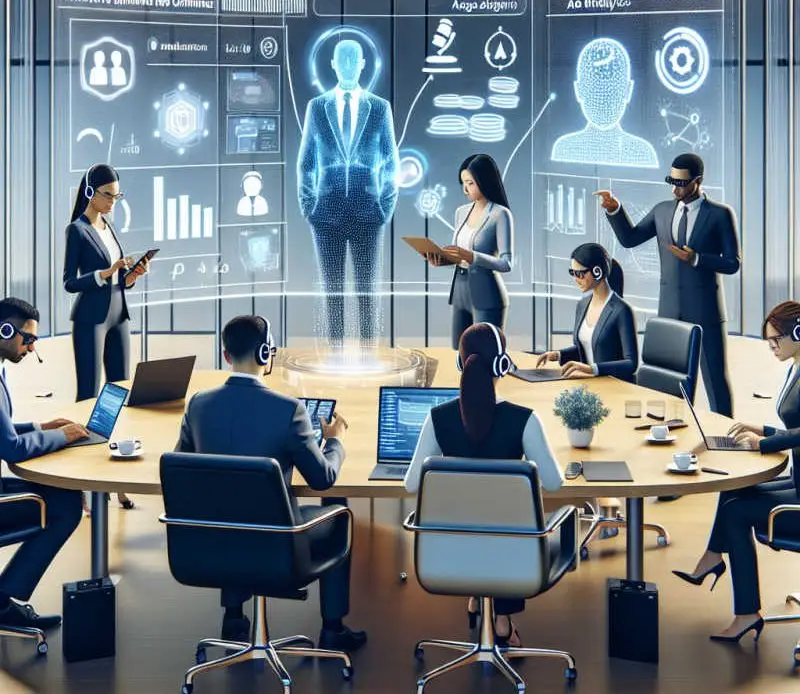The Role of Artificial Intelligence in Modern Legal Practice

Introduction
Artificial intelligence (AI) is revolutionizing industries worldwide, and the legal sector is no exception. The integration of AI into legal practice is transforming how lawyers conduct research, draft documents, and analyze cases. While AI presents significant opportunities for efficiency and cost reduction, it also raises ethical and regulatory concerns. This article explores the role of AI in modern legal practice, its benefits, challenges, and the potential future of AI-driven law.
The Emergence of AI in Legal Practice
AI has progressively become an integral part of legal services. Several AI-powered tools and applications are being utilized to streamline tasks that traditionally required extensive human effort. Some of the key areas where AI is making an impact include:
- Legal Research: AI-powered platforms like ROSS Intelligence and Westlaw Edge use natural language processing (NLP) to assist lawyers in finding relevant case law and statutes quickly.
- Contract Analysis: Tools like Kira Systems and Luminance use machine learning to analyze contracts, highlight key clauses, and identify potential risks.
- Litigation Prediction: AI algorithms can analyze past cases and provide insights on the likely outcome of ongoing litigation.
- Document Automation: AI-powered document generation tools enable legal professionals to draft standard contracts, wills, and agreements with increased efficiency.
- Compliance and Due Diligence: AI helps in identifying regulatory risks by scanning vast amounts of legal and financial data.
Benefits of AI in the Legal Sector
AI offers numerous advantages to the legal profession, including:
- Increased Efficiency: AI can process large amounts of legal data quickly, reducing the time required for research and document preparation.
- Cost Reduction: Automating routine legal tasks reduces operational costs, making legal services more affordable for clients.
- Enhanced Accuracy: AI tools can minimize human errors by identifying inconsistencies and ensuring compliance with legal standards.
- Improved Access to Justice: AI-powered legal chatbots provide basic legal guidance to individuals who may not afford traditional legal services.
- Better Decision-Making: AI-powered analytics provide data-driven insights that assist lawyers in formulating effective legal strategies.
Challenges and Ethical Considerations
Despite its benefits, AI in legal practice raises several challenges and ethical concerns:
- Bias and Fairness: AI models can inherit biases from training data, leading to unfair outcomes in legal predictions and recommendations.
- Confidentiality and Data Security: The use of AI in handling sensitive legal data poses risks related to cybersecurity and data privacy.
- Dependence on Technology: Over-reliance on AI may lead to the erosion of critical legal reasoning skills among professionals.
- Regulatory Compliance: The legal framework surrounding AI usage in law is still evolving, creating uncertainty in its application.
The Future of AI in Law
As AI technology advances, its role in legal practice is expected to expand further. The future of AI-driven law may include:
- More Advanced Legal Chatbots: AI chatbots could provide increasingly sophisticated legal assistance, handling complex queries with greater accuracy.
- AI-Assisted Judgments: Courts may utilize AI in analyzing legal precedents and providing judges with additional insights.
- Smart Contracts: Blockchain-based AI systems could facilitate automated contract execution with minimal human intervention.
- Regulatory Adaptation: Governments and legal institutions will need to develop new policies to address AI’s impact on law and ethics.
Conclusion
AI is undoubtedly reshaping the legal landscape, offering numerous advantages while also posing challenges that must be addressed. As AI continues to evolve, legal professionals must adapt to these changes by embracing AI-driven tools while ensuring ethical and legal compliance. The future of law will be a blend of human expertise and AI-driven efficiency, leading to a more accessible and effective legal system.
